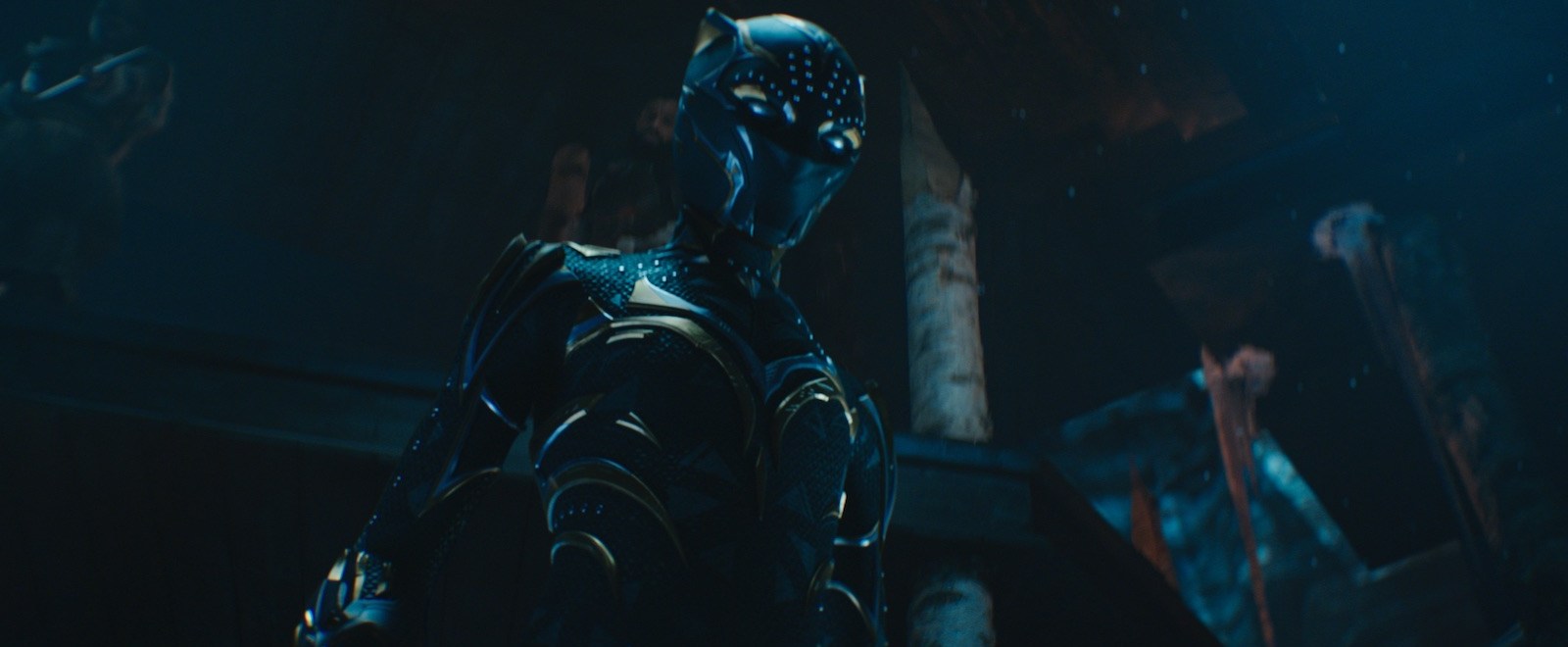It’s hard to wrap one’s head around just what the filmmakers involved in Black Panther: Wakanda Forever had to navigate through. First, there’s the emotional toll of losing Chadwick Boseman, whose death reportedly came as a shock to everyone involved. That alone, in a normal situation, would end any direct sequels. But Black Panther, a real symbol to so many people in the real world, our world, is not a normal situation. Like Black Panther, Chadwick Boseman was also an icon and any talk of just recasting the part is preposterous. (And, as director Ryan Coogler said, was never on the table, at least for him.) So Black Panther, in some form, must continue. Well, that sets up a whole other logistical problem.
Putting the emotional toll aside for a second, how do you make a sequel to one of the most successful movies of all time without the lead actor who plays the title character. I’ve seen a lot of bad sequels that did not have this particular, overwhelming obstacle. Try to put yourself in that situation for a minute. I’ll wait … okay, seriously, where do you even begin? It would be much easier to throw your hands up and say, well, this can’t be done and walk away from the whole thing. This is why I keep calling Black Panther: Wakanda Forever a miracle. Honestly, after all everyone went through, it’s a miracle if they made a movie that’s even remotely watchable. Let alone good. Let alone great. It feels like a Doctor Strange-type situation of going through each and every scenario until the found the one that wouldn’t end in failure. Well, they did it. They found the one true path.
The film hasn’t even started yet when we get to our first swelling of sadness when the traditional Marvel intro is switched out for one that only feature clips of Chadwick Boseman. It’s our first signal that, no, Wakanda Forever isn’t going to shy away from what happened and will also serve as an almost three-hour tribute to Boseman. It’s a year after the death of T’Challa (not to get too into spoilers, but all of this is handled pre-credits, off-screen, with a situation that mimics real life; it really feels like the only way to do something like this) and T’Challa’s family, Wakanda as a whole – and, let’s face it, us, really – are still mourning the loss of someone they and we admired. And the mantle of Black Panther is no longer a possibility because, in the prior film, Killmonger (Michael B. Jordan) destroyed the path to that identity.
So now there’s no Black Panther, and, in theory, there can’t be another Black Panther (after Killmonger destroyed that possibility in the first film), and the world now knows about Wakanda’s supply of Vibranium and the rest of the world seems to want their cut and will go to any means to make sure that happens. The United States doesn’t attack Wakanda directly, as other countries do, but the U.S. government has built a Vibranium detector in an effort to find the rare metal other places in the world, namely the bottom of the ocean. Enter: Namor.
Namor (Tenoch Huerta) rules the underwater civilization of Talokan, a place that also has a large supply of Vibranium, and Namor isn’t too happy about people snooping around looking for it. In fact, he blames Wakanda for telling the rest of the world about Vibranium and, in exchange for not waging war on Wakanda, he wants the U.S. scientist who made the Vibranium detector brought to him and killed. Shuri (Letitia Wright) and Okoye (Danai Gurira) contact their old pal Everett Ross (Martin Freeman) for information about this scientist, who turns out to be a student at MIT named Riri Williams (Dominique Thorne) who didn’t know that her invention would be used by the government. Now Shuri and Okoye must protect Riri.
Namor is one of the best villains in MCU history. A big reason is because “villain” is the wrong word for him. He’s certainly the antagonist of the movie, but he makes quite a few valid points. He’s just trying to protect his people. In the comics, Namor (also known there as Sub-Mariner) can come off as quite the blowhard, but here he’s presented as a rich character that jumps off the screen. There’s a moment in Black Panther: Wakanda Forever where it seems like Shuri has struck a sort of peace with Namor, only then for Namor to feel, quite reasonably, betrayed. It’s a movie where we can certainly see Namor’s point of view, which makes him compelling beyond the typical villain who wants to open up another sky portal, or whatever.
It’s a weird thing, because we’ve said goodbye to beloved characters before. Obviously, Tony Stark got quite the emotional sendoff. But we knew we’d see Robert Downey Jr. again in Dolittle. (Or, well, not see in that case.) But it’s kind of weird to even label a movie like Black Panther: Wakanda Forever as “the most emotional MCU movie,” or whatever. Which, by nature, draws comparisons to other emotional MCU beats. But this is real life. The people who made this movie lost their friend. The people who love these movies lost their hero. It transcends any emotional beats comparisons. You can see it and feel it in every second of this film. Chadwick Boseman does not appear in this movie, but he’s felt in every single scene. It feels like a way to say goodbye. And, in that, it very much succeeds … while also being a rip-roaring Black Panther movie. Again, this movie is a miracle.
‘Black Panther: Wakanda Forever’ You can contact Mike Ryan directly on Twitter.







